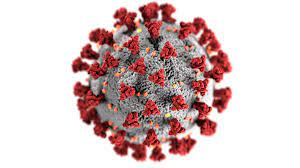COVID news: SOTROVIMAB for emergency treatment, ACTEMRA for emergency use, Revoking EUA for non-NIOSH respirators, CARES Act for drug shortage mitigations, Updated vaccine risk information, EUA process infographic
Sotrovimab
GlaxoSmithKline
INDICATION: Emergency use for the treatment of mild-to-moderate coronavirus disease 2019 (COVID-19) in adults and pediatric patients (12 years of age and older weighing at least 40 kg) with positive results of direct SARS-CoV-2 viral testing, and who are at high risk for progression to severe COVID-19, including hospitalization or death
ADDRESSING UNMET NEED: Another option to help keep high-risk patients with COVID-19 out of the hospital
MECHANISM OF ACTION: Monoclonal antibody that is specifically directed against the spike protein of SARS-CoV-2 and is designed to block the virus’ attachment and entry into human cells
EFFECTIVENESS & SAFETY:
- Phase 1/2/3 randomized, double-blind, placebo-controlled clinical trial, interim analysis, n= 583 non-hospitalized adults with mild-to-moderate COVID-19 symptoms and a positive SARS-CoV-2 test result
- Primary endpoint: Progression of COVID-19 (defined as hospitalization for greater than 24 hours for acute management of any illness or death from any cause) through day 29
- 1% with sotrovimab vs 7% with plaebo; 85% reduction
- Ongoing monitoring of circulating viral variants and their sensitivity to sotrovimab
- Laboratory testing showed retained activity against the current circulating variants reported in the UK, South Africa, Brazil, California, New York, India
REGULATORY PATHWAY: EUA
ACTEMRA (tocilizumab)
Genentech
INDICATION: Emergency use for treatment of hospitalized adults and pediatric patients (2 years of age and older) who are receiving systemic corticosteroids and require supplemental oxygen, non-invasive or invasive mechanical ventilation, or extracorporeal membrane oxygenation (ECMO). Actemra is not authorized for use in outpatients with COVID-19.
ADDRESSING UNMET NEED: Additional therapeutic for those who do become hospitalized
MECHANISM OF ACTION: Monoclonal antibody that reduces inflammation by blocking the interleukin-6 receptor; in the case of COVID-19 infection, the immune system can become hyperactive, which may result in worsening of disease
EFFECTIVENESS & SAFETY
- Four clinical trials – randomized, controlled, open-label or double-blind placebo controlled, hospitalized patients with severe COVID-19 pneumonia
- Primary endpoint: Death through 28 days of follow-up
- Reduction is death with Actemra vs. usual care alone; also reduction in days to hospital discharge
REGULATORY PATHWAY: EUA
- Actemra is an FDA-approved prescription medication for multiple inflammatory diseases, including rheumatoid arthritis
- EUA authorizes emergency use in certain hospitalized patients with COVID-19; not approved as a treatment for COVID-19.
Revoking EUA for Non-NIOSH-Approved or Decontaminated Disposable Respirators
FDA is revoking EUAs for non-NIOSH-approved disposable respirators and the EUAs for decontamination and bioburden reduction systems
- Crisis capacity conservation strategies were previously recommended to address respirator shortages earlier during the COVID-19 outbreak
- Conservation strategies are no longer needed based on the increased domestic supply of respirators approved CDC and NIOSH
- Health care personnel and facilities should only use FDA-cleared or NIOSH-approved respirators, including N95s
- FDA has revoked EUAs for several non-NIOSH approved products
Coronavirus Aid, Relief, and Economic Security Act (CARES Act) Drug Shortage Mitigation Efforts
Coronavirus Aid, Relief, and Economic Security Act (CARES Act) was signed into law in 2020, to aid response efforts and ease the economic impact of COVID-19
- Enhance ability to identify, prevent, and mitigate possible drug shortages and enhance visibility into drug supply chains
- Agency works closely with drug manufacturers to prevent or reduce the impact of shortages
The specific authorities to enhance FDA’s ability to identify, prevent, and mitigate drug shortages are summarized below.
Specific authorities:
- Notifying FDA of Manufacturing Discontinuance and Interruptions
- Creating Risk Management Plans for Drugs
- Reporting the Amount of Drugs Manufactured
Updated Moderna and Pfizer-BioNTech Vaccine Risk Information
Suggested increased risks of myocarditis (inflammation of the heart muscle) and pericarditis (inflammation of the tissue surrounding the heart) following vaccination
- Update follows an extensive review of information and the discussion by CDC’s Advisory Committee
- Reports of adverse events suggest increased risks of myocarditis and pericarditis, particularly following the second dose and with onset of symptoms within a few days after vaccination
- Updated Fact Sheets note that vaccine recipients should seek medical attention right away if they have chest pain, shortness of breath, or feelings of having a fast-beating, fluttering, or pounding heart after vaccination
- More information being collected to assess longer-term outcomes
FDA’s EUA Process Infographic
Image credits: FDA

